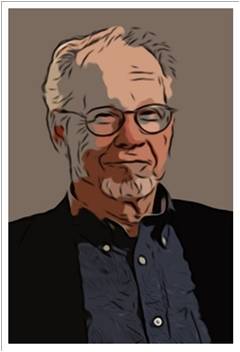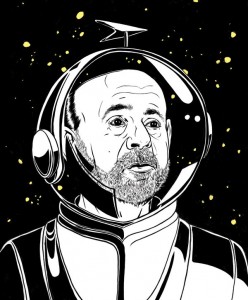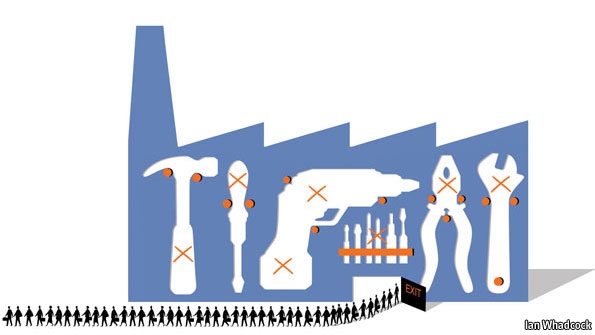
On Monday night students in the Economics of the Firm class (Econ 450) will be showing off their work on the economic organization of Lawrence University. You can check this out in Briggs 223 on Monday at 6 p.m. I am impressed with the quality of the students in this course, and I am confident that they will put on a good show. If you aren’t careful you might even learn something about LU. Indeed, this should be of interest just for the descriptive statistics.
‘Selling’ Yourself Short? The Promise and Pitfalls of Income-Contingent Loans: With graduation just a few days away for the Lawrence University class of 2012, the time has come to embrace a looming reality: college loans. Most of us have them and they need to paid back. According to FinAid.org, more than 65 percent of four-year undergraduate students in America take on debt in the form of government and/or private loans to finance their education. Loans are generally issued by institutions or individuals with available money in return for a premium in the form of a fixed interest rate. An alternative option exists, however, whereby students instead offer investors a share of their future earnings, similar to the capital-raising efforts employed by firms. The idea is by no means new; in fact, Milton Friedman advocated the use of income contingent loans in 1955. Our project explores the benefits and concerns associated with issuing equity to finance education and analyzes whether this alternative option is viable for Lawrence University. We will discuss the adoption of an income contingent loan program at Yale University in the 1970s to provide an experiential understanding of this practice. (David Caprile, Oscar Koberling, Rana Marks, Stuart Smith).
Are Excess Endowments a Problem? Monitoring and Agency Problems among the Associated Colleges of the Midwest Economic discourse on the theory of the firm developed while trying to understand the for-profit firm; however, the last few decades have witnessed an increase in research on the not-for-profit firm. There is considerable variability among the two categories, for-profit and non-profit. One intriguing non-profit is the university. Unlike most non-profits and all for-profits, universities keep large cash surpluses. The reason for these large endowments has remained a puzzle (Hansmann 1990) One proposed explanation for large endowments is agency problems. We draw on data from a pool of small private liberal arts colleges to examine the relationship between “excess endowments” and high monitoring and agency costs. (Molly Ingram, Regina Hammond, James Maverick).
Why Does Lawrence University Have So Many International Students? Lawrence University has the highest percentage of international students of any college in the Associated Colleges of the Midwest. Indeed, the percentage of Chinese students on campus is higher than the percentage of all international students at several ACM schools. The “awkward” economics of higher education suggests that “colleges can buy important inputs to their production only from the customers who buy their products; colleges buy important inputs to their production only from the customers.” Lawrence procures these inputs by providing generous financial aid, lower initial deposits, and through other avenues. In turn, international students help provide language instruction, promote campus diversity, and contribute significantly to campus cultural activities. Our regression results are consistent with our contention that LU has an unusually high percentage of international students. (Linlin Liang, Yue Jia, and Zhan Guo).
Food catering services: Dine in or dine out? This project looks at data collected from 100 top liberal arts colleges ranked by U.S. News and World Report to determine factors that contribute to college’s food services make- or-buy decision. Consistent with the empirical work on make or buy decisions (e.g., Monteverde & Teece 1982; Joskow 1987, Anderson & Schmittlein 1984), we examine potential conventional microeconomic as well as transaction-cost theories for Lawrence’s recent outsourcing of food services. We provide logistic regression on outsourcing as a function of based on endowment size, campus acreage, size of the student body, location relative to urban areas. (Max Randolph, A.S. Darling, Andrew Kraemer, Brian Zindler).

 John Maynard Keynes is the father of modern macroeconomics, and Keynesian economics and the welfare state have been inextricably linked in the public mind since the postwar era. Indeed, he is widely believed to have provided the analytical, economic underpinnings for the welfare state. Bradley Bateman, a recognized scholar of Keynsian thought, examines Keynes’s contributions with the backdrop of the recent financial calamities and the widespread fiscal crises of state and national governments.
John Maynard Keynes is the father of modern macroeconomics, and Keynesian economics and the welfare state have been inextricably linked in the public mind since the postwar era. Indeed, he is widely believed to have provided the analytical, economic underpinnings for the welfare state. Bradley Bateman, a recognized scholar of Keynsian thought, examines Keynes’s contributions with the backdrop of the recent financial calamities and the widespread fiscal crises of state and national governments.


